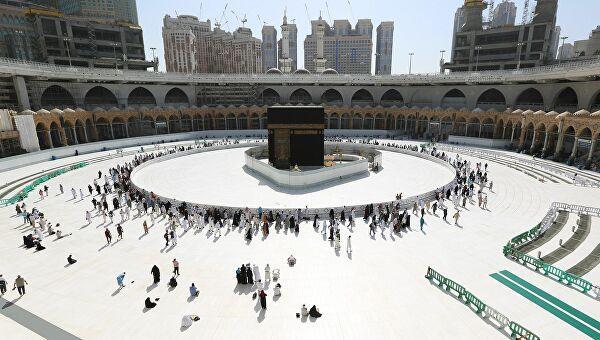
Visiting the Ka’aba can be performed on the metaverse, but it will not be considered as a “real hajj,” the Turkish Presidency of Religious Affairs (Diyanet) has said following a month-long discussion.
The discussion began when Saudi Arabia brought Islam’s holiest site into the metaverse age with a new initiative in December 2021 that allows Muslims to virtually view a religiously revered rock in the city of Mecca from their houses.
The metaverse-event is called “Virtual Black Stone Initiative” in which users can virtually see the Hajr Aswad, or Black Stone, which is laid into one corner of the Ka’aba, located in Mecca’s Great Mosque.
“The initiative allows Muslims to experience the Hajr Aswad virtually prior to the pilgrimage to Mecca,” the Saudi officials said in a statement while announcing the initiative.
However, the initiative caused controversy among some Muslims across the globe questioning on social media whether “hajj on the metaverse” could be considered a “real worship.”
Among them were Muslims in Turkey asking Diyanet the same question.
“This [Hajj on the metaverse] cannot happen,” Remzi Bircan, the director of Diyanet’s Department of Hajj and Umrah Services, said on Feb. 1.
“Believers can pay a visit to Ka’aba on the metaverse, but it will never be considered a real worship,” he said and added: “People’s feet should touch the ground.”
According to Bircan, hajj should and will be performed by going to the holy city in real life.
He said the Saudi initiative was probably launched “for promotion.”
Giving an example of the Archeological Museum in Istanbul, Bircan noted, “Like touring the museum with [Virtual Reality] VR glasses, Saudis started this virtual travel program to promote the Ka’aba.”
Rather than religious, the event is totally an “informative initiative.”
The project was realized by Saudi Arabia’s Exhibitions and Museums Affairs Agency, working with Umm al-Qura University.
The mastermind of the project is the Haramain, which can be translated as “the two sanctuaries,” referring to Mecca and Medina and specifically the two holy mosques in those cities.
The project was introduced in a ceremony in Dec. 14, 2021, with the presence of Abdul-Rahman al-Sudais, the general president of Haramain.
Abdullah Tırabzon, an academic from the Faculty of Theology of the Istanbul University, agreed with Diyanet.
“The virtual and reality can never be equal. Once you pay a virtual visit to the Ka’aba, you are not a real pilgrim or an umrah performer,” Tırabzon said.
He also remarked the danger and risks of the metaverse in religious terms.
“If someone shows up with the idea of ‘hajj on the metaverse’ today, then tomorrow another can bounce off with an idea of ‘prayer on the metaverse.’ These are all expired thoughts.”
The metaverse is a network 3D virtual world focused on social connection.